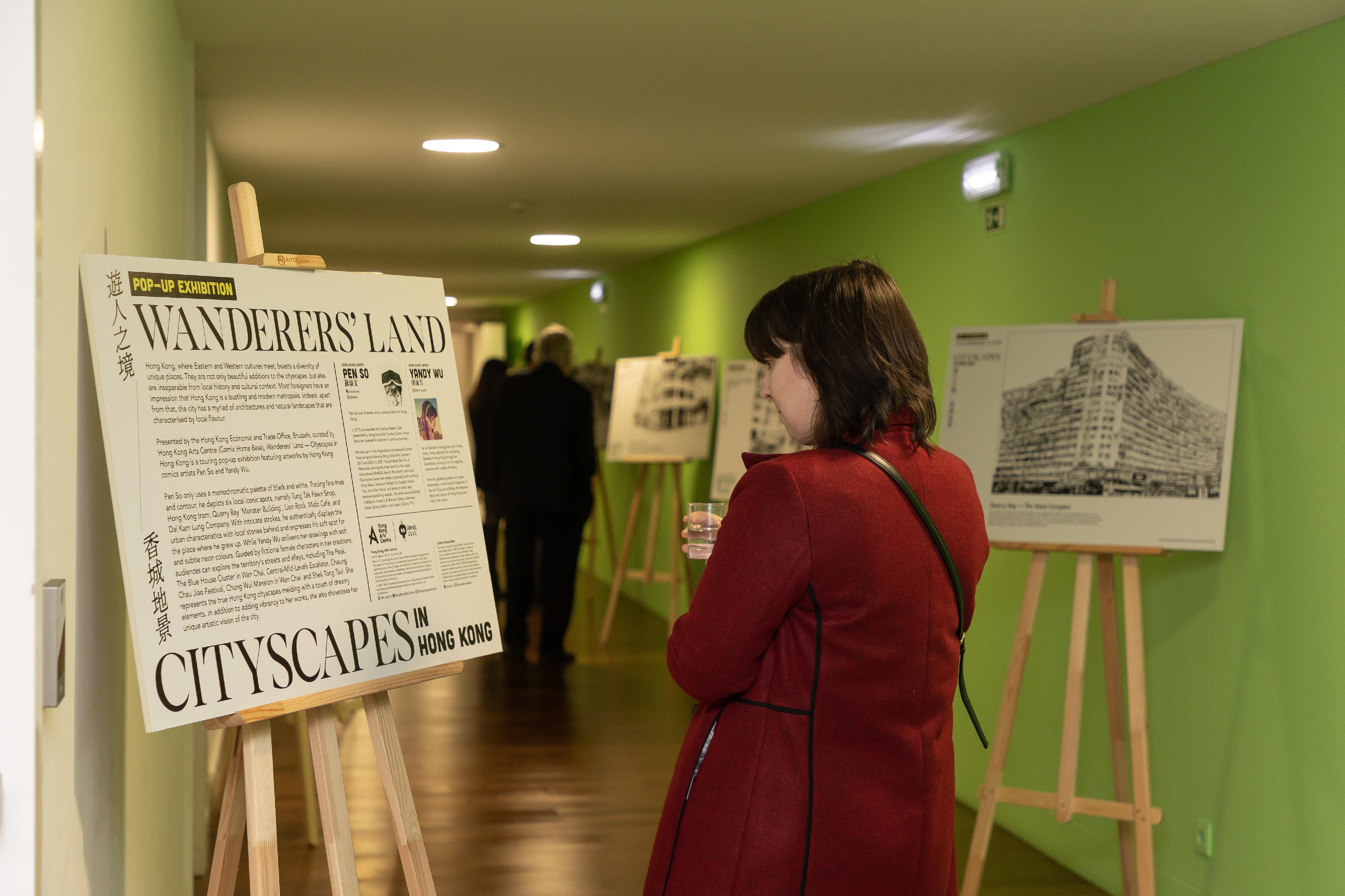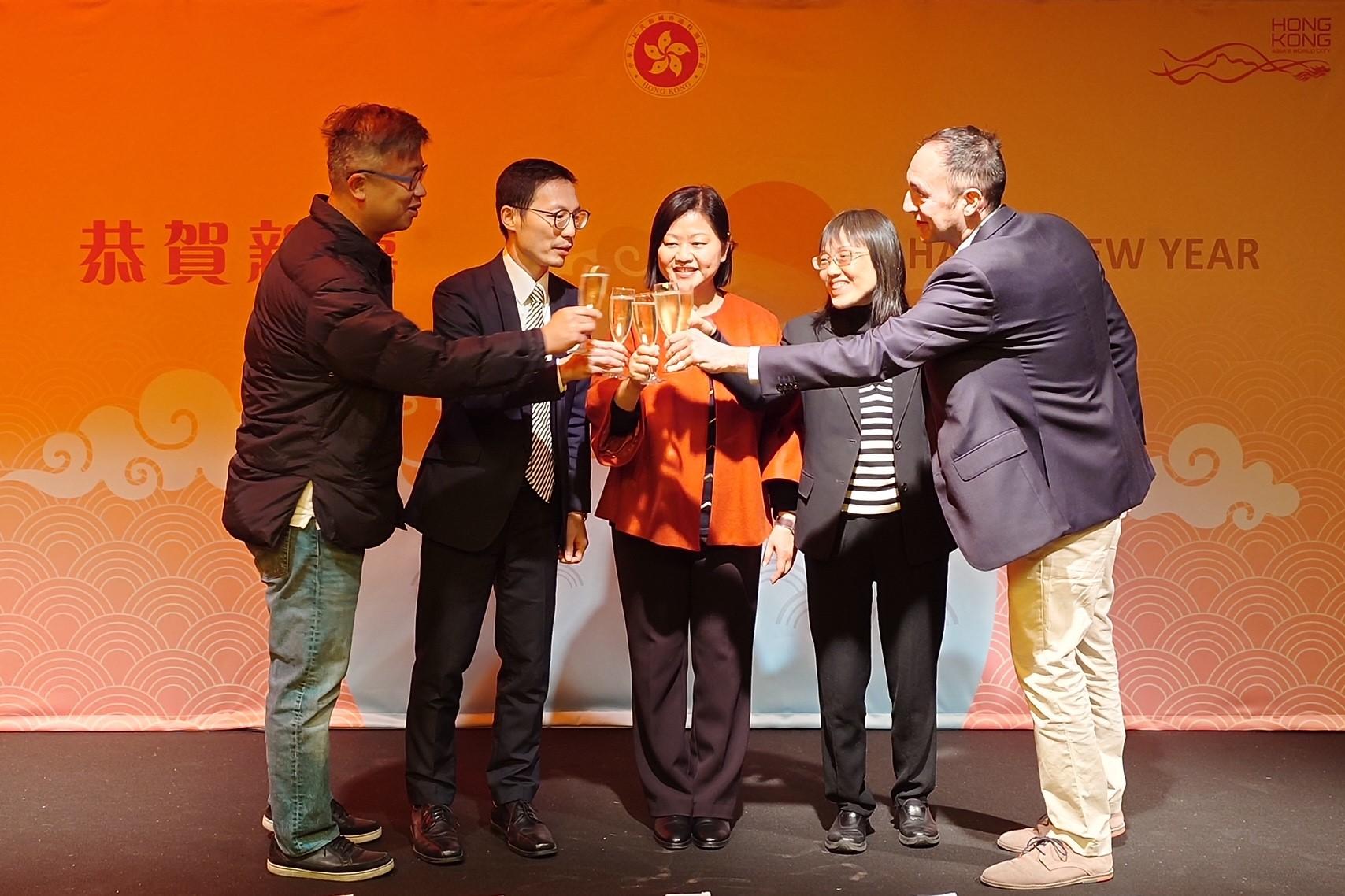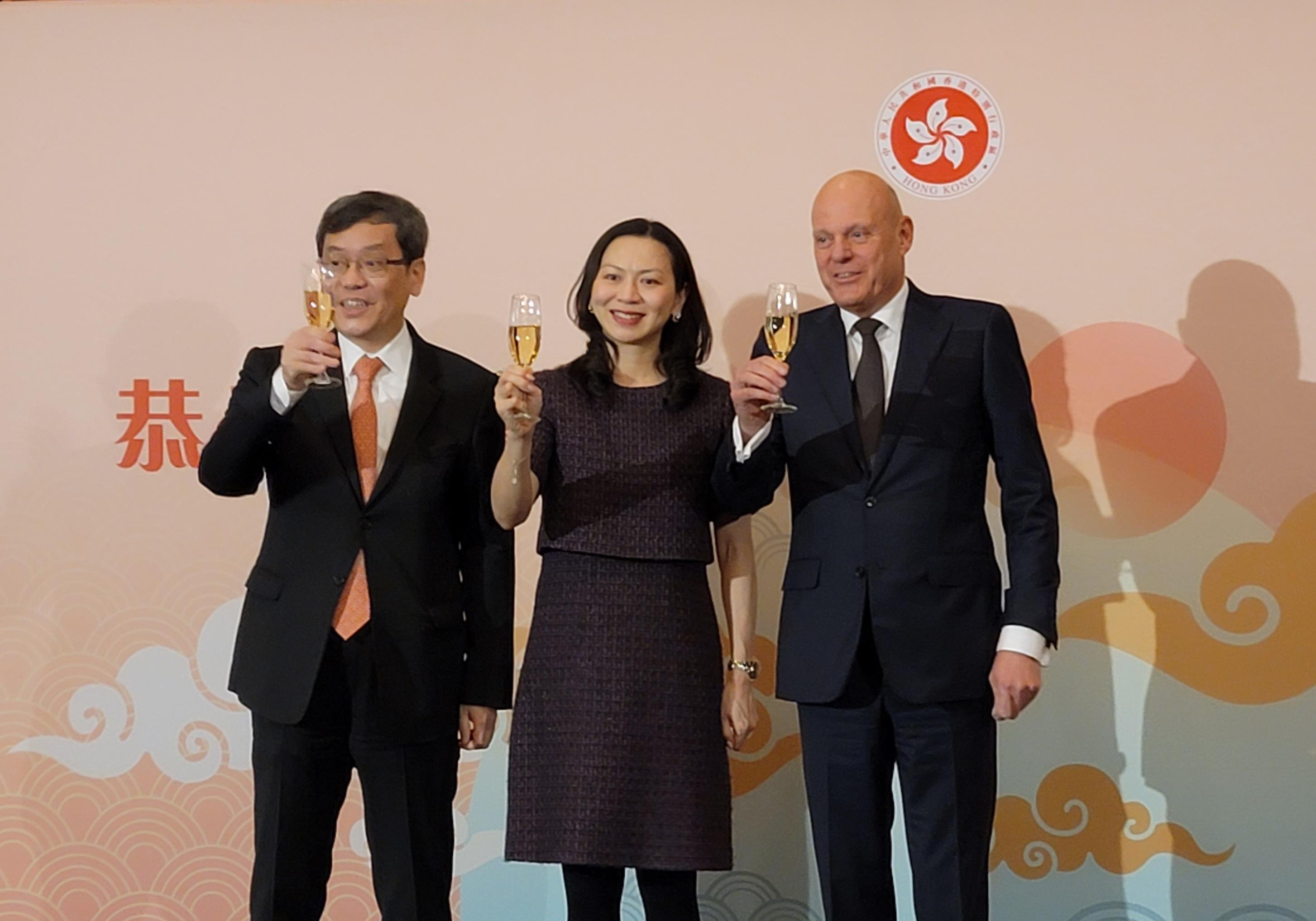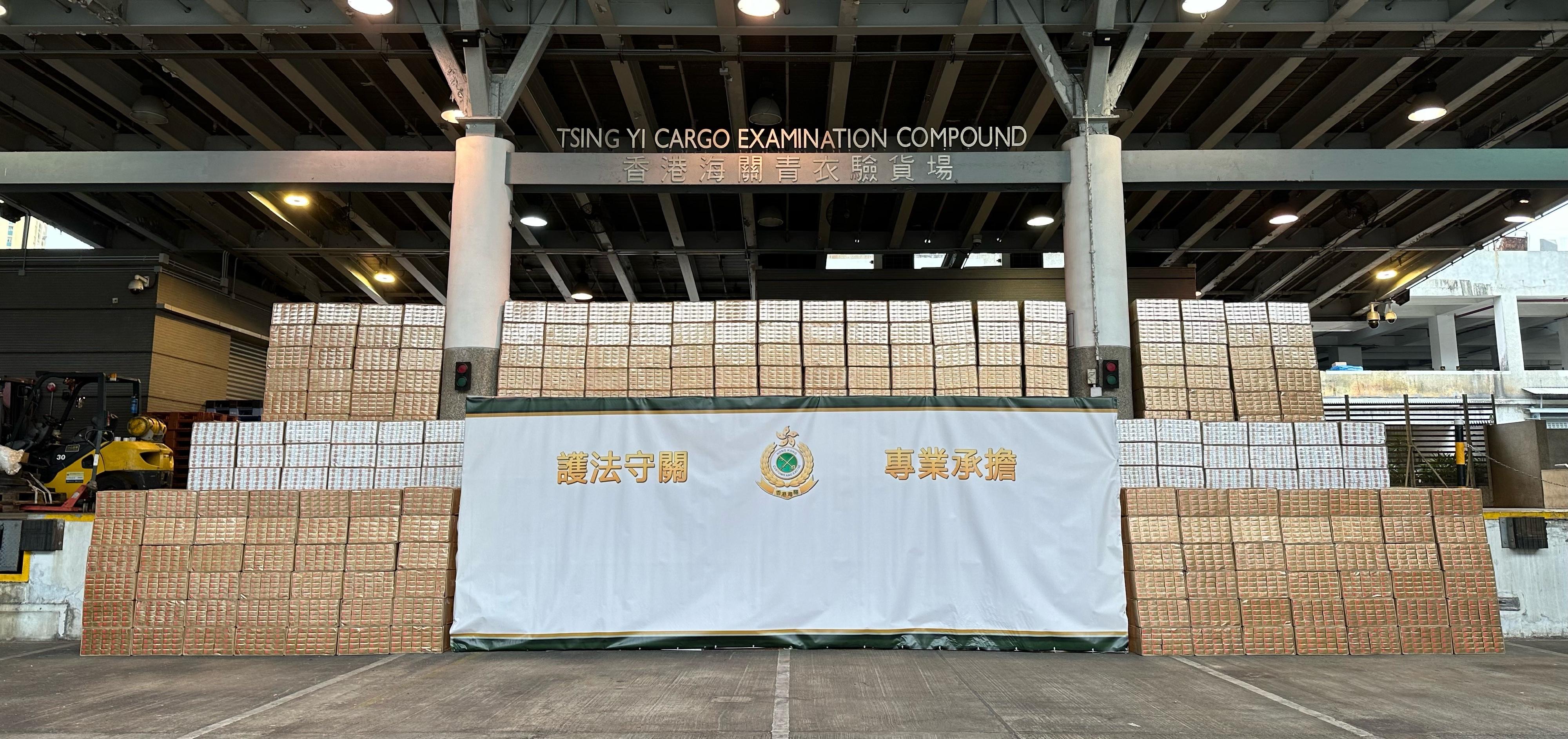HKETO, Brussels concludes month-long celebration events for Year of Dragon (with photos)
The Hong Kong Economic and Trade Office, Brussels (HKETO, Brussels) hosted Chinese New Year receptions in Lisbon, Portugal (February 22), in Barcelona, Spain (February 27), and in The Hague, the Netherlands (February 28), and concluded the month-long celebrations for the Chinese New Year.
In her welcoming remarks, the Special Representative for Hong Kong Economic and Trade Affairs to the European Union, Ms Shirley Yung, emphasised the unique advantages of Hong Kong under the "one country, two systems" principle, as well as its role as both a gateway to China and a prime destination for businesses. She also encouraged guests to explore Hong Kong's beautiful natural landscapes and experience the exciting cultural festivals and events in the city.
Underlining the special position of Hong Kong as an international arts and cultural hub, the HKETO, Brussels presented at the receptions the cultural talents from Hong Kong. In Lisbon, it invited musicians from Hong Kong, namely harmonicist and composer CY Leo and pianist Joyce Cheung, for a performance comprising original composition, and rearrangement on classics and Chinese folk music. In addition, an exhibition was arranged with drawings by Hong Kong comics artists Pen So and Yandy Wu, curated by the Hong Kong Arts Centre (Comix Home Base) in the theme Wanderers' Land – Cityscapes in Hong Kong. In The Hague, guests were presented with a captivating floral installation and an interesting live demonstration as designed and arranged by an internationally awarded floral artist from Hong Kong, Dr Solomon Leong. The flower arrangements not only brought joy and festivity, but also showcased the linkage between Hong Kong and the Netherlands, highlighting Hong Kong as a melting pot of Western and Eastern cultures.
The Chinese New Year receptions were well received, with a total of around 500 guests of various backgrounds including government representatives, businessmen, academic, and members of the local Chinese and Hong Kong community. The three receptions were hosted in co-operation with Invest Hong Kong, and respectively with the Portugal-Hong Kong Chamber of Commerce and Industry, the Spain Hong Kong Business Association, and the Netherlands Hong Kong Business Association.
From the end of January, the HKETO, Brussels has organised receptions in Paris, France (January 30), Milan, Italy (February 6), Luxembourg (February 8), Ankara (February 15) and Istanbul (February 16) in Türkiye, and Brussels, Belgium (February 20).








